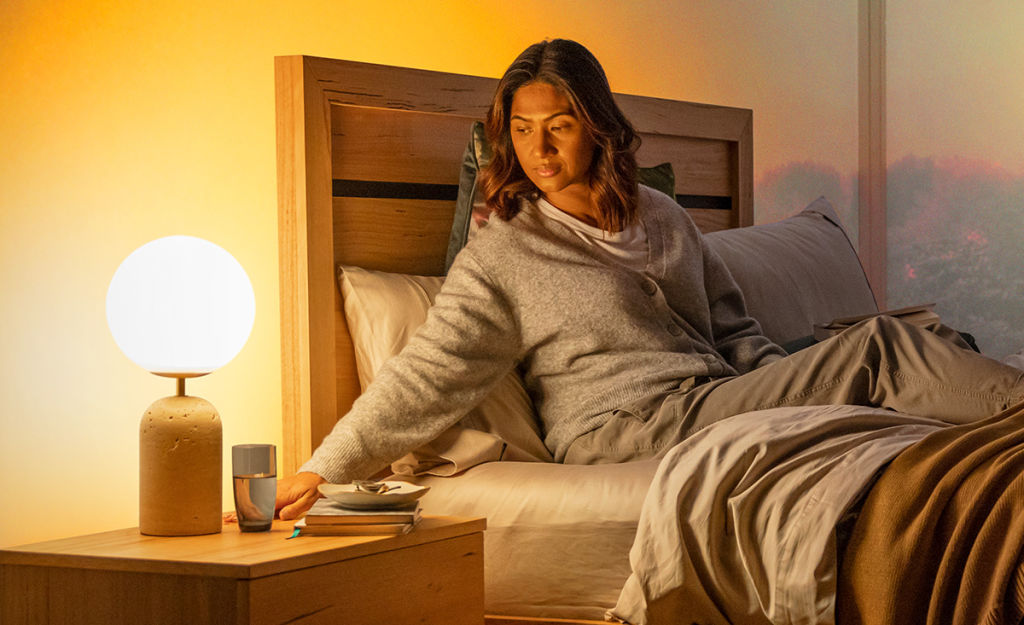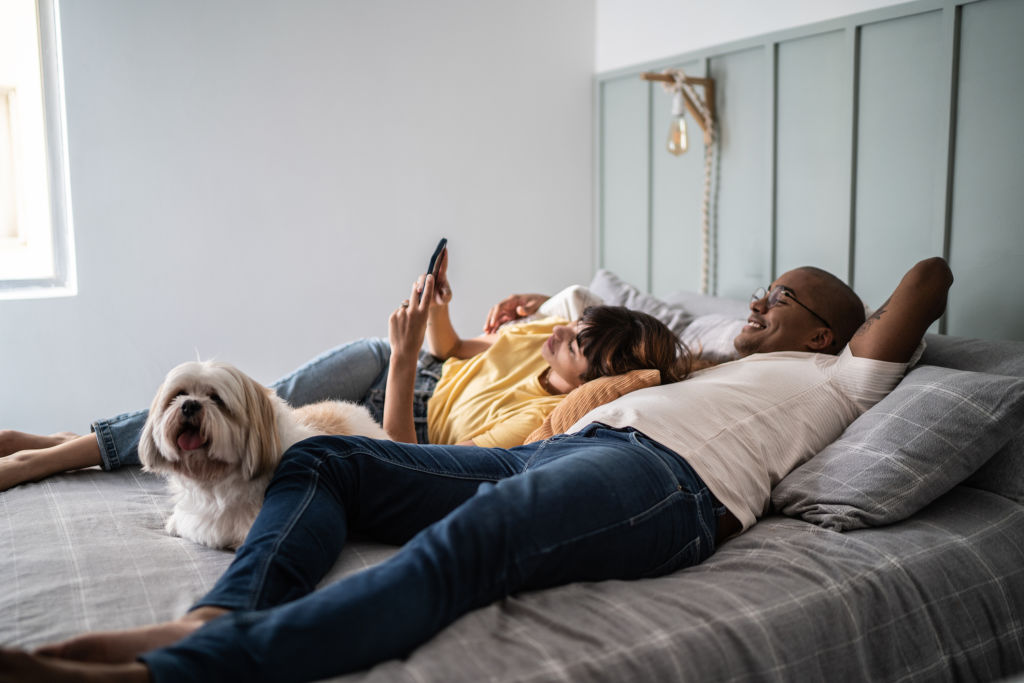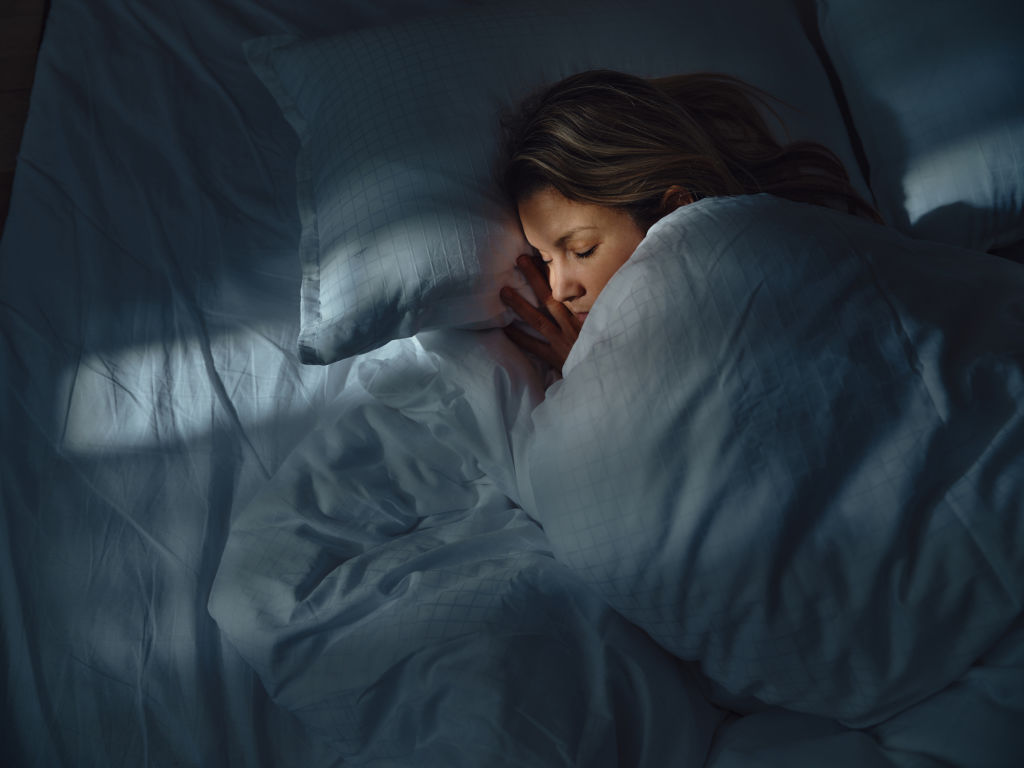Five things you really should do in bed

Most of us will spend a third of our lifetime in bed, catching the all-important Zs that power us through our waking hours.
Shared with our partners – and perhaps our children – the bedroom is both a place to rest and reconnect. Decades of research have proven sleep, rest and relationships all interrelate and are all integral to our overall health and wellbeing.
So, consciously developing healthy bedroom behaviour really matters. Here are five things we all should do in bed.
1. Keep it cool
Warmer temperatures make it much harder to fall asleep and stay asleep. Our core body temperature has a circadian rhythm, says sleep practitioner Deb Herdman. “It needs to cool down for melatonin to be produced,” she says.
Melatonin is a naturally-produced hormone that helps to control how and when we sleep. “That explains why when you feel tired on a hot night and climb into bed, you can’t fall asleep. You need a reduction in core body temperature.”
She recommends cooling a hot room down in advance by turning on an air-conditioner or fan an hour before bed. “Getting into a cooler bedroom will help you fall asleep easier,” she says.

2. Protect your sleep space
“If you have a pet that’s disturbing your sleep, you need to address that,” says Herdman. It’s not a blanket ban on all furry friends, though. Only those that frequently wake up during the night, walk around or need to use the bathroom. “My pet sleeps in my room, but he’s an amazingly sound sleeper,” she says.
It’s also best to make a real effort to get children to sleep in their own beds if they are disturbing their parents’ sleep.
3. Be conscious of screen use
Our circadian rhythm seems to be especially sensitive to blue light, such as that emitted by our bright phone screens.
Scrolling through emails, social media, or news updates makes it harder for our brains to switch off. “If you’re on a screen and you’re scrolling, it’s not great because it’s alerting to your brain,” says Herdman. “The more passive it is, the better.”

Herdman believes watching television can sometimes be beneficial for those suffering from insomnia, as it can assist with relaxation and promote sleepiness. “For people who are insomniacs, that might be the thing that stops them thinking,” she says.
Senior psychologist Nahum Kozak from Lighthouse Relationships says turning to TVs, phones, or laptops automatically can be a distancing activity “if we do it thoughtlessly”.
“Instead, be a bit more intentional about being open to connection in this time, such as checking in with your partner. For example: ‘Hey, I’m planning to scroll for a bit – unless you’d rather tell me about your day first?’”
4. Sleep with good curtains

Melatonin production increases in the evening with darkness and decreases when you’re exposed to light. For this reason, sleeping with the blinds or curtains shut is recommended by Herdman.
“Falling asleep might not be too bad but if you don’t plan on rising with the sun at 5.30am, you’re much better off to have a dark room,” she says.
5. Find a personalised solution to common problems
Issues such as unsynchronised bedtimes can become a point of contention in a relationship, but Kozak recommends couples look for creative solutions.
“There are loads of reasons partners each might want to go to bed at different times; from one partner snoring to a night owl being paired with an early bird,” says Kozak.

It’s a conversation he has worked through with his wife. “I personally need less sleep than my wife, and I also do some of my best writing at night,” he says. “At one stage, she shared that going to bed and falling asleep alone made her feel lonely, so we talked about that need and my own need for nighttime productivity.
“Our creative solution was that I go to bed at the same time as her, and stroke her hair for a while, which she loves. When she falls asleep, I gently get back up again and then get a couple of hours’ writing done.”
While a good night’s sleep might not look the same for everyone – there’s no doubt it is important.
If you are struggling to enjoy your time in bed, it might be worth trying to implement these simple measures.
This article is brought to you by Snooze – it’s amazing what a little snooze can do.
We recommend
We thought you might like
States
Capital Cities
Capital Cities - Rentals
Popular Areas
Allhomes
More







